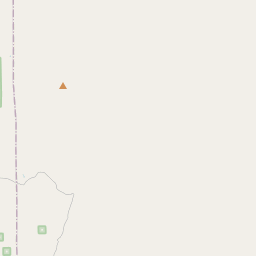Inscription
By wagon, encampments in the Guernsey area, are a day's trek from Fort Laramie. Emigrants had three choices of camp sites in the Guernsey area: Register Cliff, Warm Springs or Cold Springs, the farthest encampment.
Lieutenant John C. Fremont's Camp Site
In 1842, Lieutenant John C. Fremont, led a mapping expedition of the Oregon Trail. According to Fremont's map maker, Charles Preuss, the flat area just below this sign is the most likely where the expedition camped on 21-22 July 1842. While camped here, Fremont noted in his report to Congress that Fort Larami would be a suitable place for a military post.
Warm Springs Camp Site
Many period documents describe this area as the Emigrant's Wash or Laundry Tub, due to the natural warm water temperature. Warm Springs is located approximately 1.25 miles to the west, up the drainage you are facing. In 1842, Lieutenant John C. Fremont wrote "At the distance of ten miles from the fort, we entered the sandy bed of a creek, a place where, on the left bank, a very large spring gushes with considerable noise and force out of the limestone. On the opposite side, a little below the spring, is a lofty limestone escarpment, partially shaded by a grove of large trees." Today, the site remains much the same.
Cold Springs Pass and Camp Site
Cold Springs Pass is located approximately three quarters of a mile and just to the left of the highest point you see. The Pass was used to get to Cold Spring Camp Site. The camp site is observable from a pull out on Highway 26 and is located approximately 2 miles west of Guernsey.
Register Cliff
Register Cliff is located 2 miles to the East. The camp site was located on the flats below a mile long cliff of soft sandstone used as a name register by thousands of emigrants from 1847 on. It's interesting that no emigrant ever mentions inscribing names or initials on the cliff in diaries. Also located near Register Cliff was the War and Guerrier Trading Post (1852-1855), Mills and Janis Trading Post (1858-1860), and the Sandy Point Pony Express Station (1860-1861).
In 1842, Lieutenant John C. Fremont, led a mapping expedition of the Oregon Trail. According to Fremont's map maker, Charles Preuss, the flat area just below this sign is the most likely where the expedition camped on 21-22 July 1842. While camped here, Fremont noted in his report to Congress that Fort Larami would be a suitable place for a military post.
Many period documents describe this area as the Emigrant's Wash or Laundry Tub, due to the natural warm water temperature. Warm Springs is located approximately 1.25 miles to the west, up the drainage you are facing. In 1842, Lieutenant John C. Fremont wrote "At the distance of ten miles from the fort, we entered the sandy bed of a creek, a place where, on the left bank, a very large spring gushes with considerable noise and force out of the limestone. On the opposite side, a little below the spring, is a lofty limestone escarpment, partially shaded by a grove of large trees." Today, the site remains much the same.
Cold Springs Pass is located approximately three quarters of a mile and just to the left of the highest point you see. The Pass was used to get to Cold Spring Camp Site. The camp site is observable from a pull out on Highway 26 and is located approximately 2 miles west of Guernsey.
Register Cliff is located 2 miles to the East. The camp site was located on the flats below a mile long cliff of soft sandstone used as a name register by thousands of emigrants from 1847 on. It's interesting that no emigrant ever mentions inscribing names or initials on the cliff in diaries. Also located near Register Cliff was the War and Guerrier Trading Post (1852-1855), Mills and Janis Trading Post (1858-1860), and the Sandy Point Pony Express Station (1860-1861).
Details
| HM Number | HM1LZQ |
|---|---|
| Series | This marker is part of the Oregon Trail series |
| Tags | |
| Placed By | The Wyoming National Guard, in cooperation with the Advisory Council on Historic Preservation, U.S. Department of Interior, Wyoming State Historic Preservation Office, ad Wyoming State Parks and Historic Sites |
| Marker Condition | No reports yet |
| Date Added | Sunday, July 19th, 2015 at 6:05pm PDT -07:00 |
Pictures
Locationbig map












| UTM (WGS84 Datum) | 13T E 520608 N 4678261 |
|---|---|
| Decimal Degrees | 42.25628333, -104.75015000 |
| Degrees and Decimal Minutes | N 42° 15.377', W 104° 45.009' |
| Degrees, Minutes and Seconds | 42° 15' 22.62" N, 104° 45' 0.54" W |
| Driving Directions | Google Maps |
| Area Code(s) | 307 |
| Which side of the road? | Marker is on the right when traveling East |
| Closest Postal Address | At or near Unnamed Road, Guernsey WY 82214, US |
| Alternative Maps | Google Maps, MapQuest, Bing Maps, Yahoo Maps, MSR Maps, OpenCycleMap, MyTopo Maps, OpenStreetMap |
Is this marker missing? Are the coordinates wrong? Do you have additional information that you would like to share with us? If so, check in.
Nearby Markersshow on map
Maintenance Issues
- What historical period does the marker represent?
- What historical place does the marker represent?
- What type of marker is it?
- What class is the marker?
- What style is the marker?
- Does the marker have a number?
- What year was the marker erected?
- This marker needs at least one picture.
- Can this marker be seen from the road?
- Is the marker in the median?

Comments 0 comments